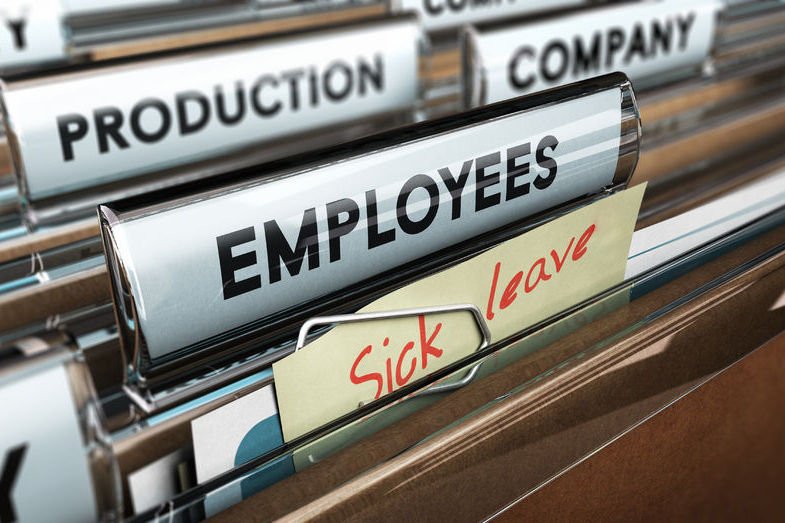Blog
Why employers should do Return to Work Interviews

As organisations strive to maintain productivity and support their workforce, return to work interviews play a pivotal role in managing employee absences. In this blog, we’ll delve into the significance and benefits of a return to work interview and address the essential question of ‘when should a return to work interview be done?’
Employers and managers often underestimate the importance of return to work interviews, seeing them as an unnecessary administrative hurdle that only serve to prolong the absence management process.
In reality, return to work interviews are an essential part of managing attendance and, done right, can be an effective way of reintegrating employees and reducing bogus absences.
There are a number of reasons why employers shy away from conducting return to work interviews. You might be unsure how to go about it, or assume that it needs to be a lengthy, formal procedure. This can be off-putting, especially for time-strapped managers and HR teams, and it can be tempting to let the employee get back to work with a few pleasantries exchanged.
In fact, return to work interviews can be as simple and straightforward as an informal meeting over coffee between an employee and their line manager. What matters is that they offer an opportunity to check in with the employee and address any issues before they get stuck back into their work.
What is a return to work interview?
As the name suggests, a return to work interview is a meeting held with an employee after a period of absence.
The primary purpose of a return to work interview is to welcome the employee back, discuss the reasons for their absence and confirm that they are fit to attend work. It is also an opportunity to bring the employee up to speed with any changes that have occurred during their absence, develop a return to work plan (which might include making reasonable adjustments), and identify any underlying health concerns that need to be addressed. From a business perspective, return to work interviews are perhaps the best tool managers have at their disposal to reduce employees’ absence levels, as we will discuss later.
How to prepare for a return to work interview
Before conducting a return to work interview, identify a private room where the meeting can take place without interruption, consider whether it would be best to conduct the meeting over the phone or face to face, and gather any relevant information you might need at hand, such as the employee’s absence record or fit note.
It is also a good idea to plan a loose structure for the interview to ensure all bases are covered. Examples of return to work interview questions include:
- What caused the absence? Was work a contributing factor?
- Is this an ongoing or recurring condition?
- Did you see a GP? What was the outcome?
- How are you feeling now? Do you feel able to return?
- Could it happen again? Is there anything that can be done to prevent recurrence?
- What adjustments might help facilitate a return to work? (For example, can changes be made to their working pattern, physical work environment and/or role?)
- What support do they need to get back on track? (They might need refresher training, a prioritised action plan, etc.)
Take notes during the meeting, including the outcomes agreed. As well as helping to formulate a return to work action plan, this will ensure the employee’s time off has been recorded accurately.
6 benefits of return to work interviews
Though not a legal requirement, there are a number of business benefits of return to work interviews. In particular, they can help employers to:
1. Gain better insight into the reasons for and nature of absences
Was the absence due to illness or some other reason? If it was illness-related, holding a return to work interview is an opportunity to delve deeper into the nature of the illness and find our whether the employee is fully recovered or whether it is part of an ongoing condition. Either way, gathering this information will help to determine next steps.
2. Uncover issues and identify potential solutions
Sitting down with employees may help you to agree on some simple solutions to reduce persistent short-term absence and improve attendance. For example, you may discover that they are dealing with a family bereavement or some other serious personal matter, in which case you might explore whether their absences could be reduced through flexible working arrangements. You may also uncover that those who are claiming sickness are actually avoiding work due to issues such harassment by a colleague, which will require you to investigate any claims and take appropriate action. Whatever the reason, the return to work interview should help you to get to the root cause of the problem, understand the employees concerns, and work with them to find a solution.
3. Monitor absences and spot trends
By keeping detailed records of these meetings, you may notice certain patterns emerging. For example, it might be that a few employees in the same team are taking absences because they are suffering from a particular ailment (e.g. back pain), or perhaps certain employees have a tenancy to call in sick on Mondays and Fridays which may require further monitoring and investigation. By honing in on these trends, you can identify specific underlying problems, review your current practices and decide how best to remedy the issue.
4. Identify reasonable adjustments
If there are signs that the employee is suffering from a long-term health issue which could be considered a disability, conducting a return to work interview provides an opportunity to explore what steps can be taken to assist them. There is an obligation on employers to consider making reasonable adjustments to the employee’s role or workplace if they are disabled as defined under the Equality Act 2010. This might include making physical adjustments to the premises to make it more accessible, providing or modifying equipment, or altering certain aspects of the employee’s role or working hours. These adjustments don’t have to be expensive, and will help to prevent further absences and ensure the employee can be as effective as possible in their role.
5. Deter employees from pulling sickies
If an employee is taking frequent short-term absences and you suspect they are malingering, return to work interviews may act as a deterrent by demonstrating to employees that you are taking them seriously.
Holding a meeting after each absence will demonstrate to employees that their absences are being monitored, that their manager is spotting specific trends, and that disciplinary action may be taken against them.
6. Reiterate your expectations and set targets for improvement
Repeated short-term sickness absence can be incredibly disruptive. Your sickness absence policy should therefore set clear trigger points for unacceptable levels of short and frequent sickness absence.
There are two main ways to do this:
- Set a threshold of a certain number of days’ absence in a given period (for example, X days in X months).
- Trigger the procedure where an employee’s absence reaches a set ‘Bradford factor’ score. This means that more weight is given to the number of absences instead of the duration, so a high number of short absences will score much higher than fewer longer absences.
You will also need to determine what will happen once those triggers have been met. Will the employee receive an informal caution at first? Will repeated absences lead to formal warnings? Will they face dismissal for serious and unacceptable absences?
Return to work interviews are an opportunity to remind employees of these triggers and the potential consequences, as well as set clear improvement targets and timescales in which to achieve them.
Related Content
Looking for return to work support?
Our Employment Law specialists are well-versed in all aspects of sickness absence and can help you to manage situations in line with legislation and best practice. From drafting a solid sickness absence policy that works for you and your employees to guiding you through the process required for different categories of absence, we can help you take early action and find solutions that balance employee wellbeing with the needs of your business.
To discuss your specific situation and enquire about our personalised, fixed-fee support, call 0345 226 8393.












